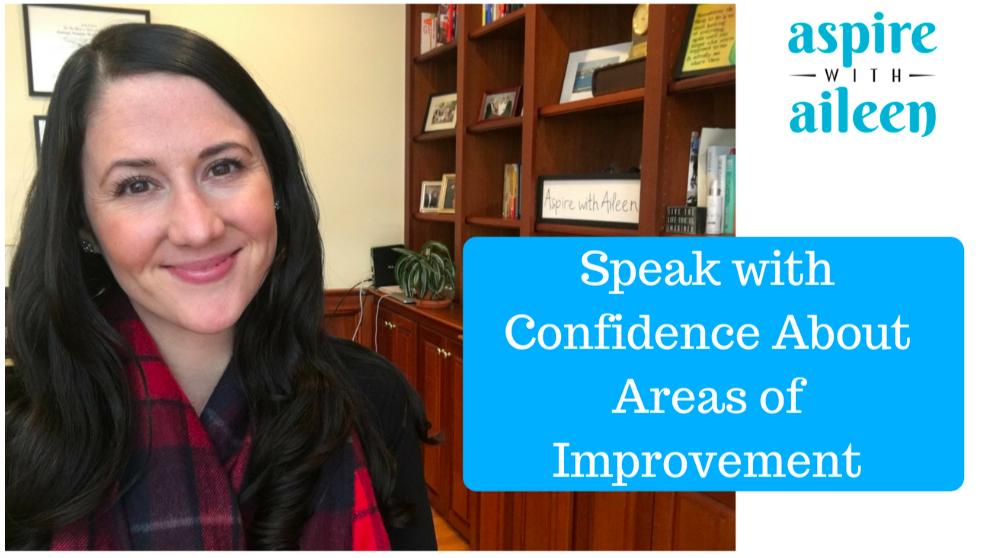In the 10 years I've spent helping people move from feeling nervous to confident before interviewing, this is often the questions that's most dreaded by my clients.
When asked "Describe a weakness of yours?" it's important to first and foremost think about WHY the employer is asking you the question.
What do they actually care about and hope to learn?
This video will discuss what the question within the question is here, as well as three strategies for structuring your answer. For a complete guide to answering this, along with the "Tell me about yourself" question, you can download my free guide to the two most dreaded interview questions here.
You can also grab more free interviewing tips here, and how to answer negative interview questions here. I LOVE doing mock interviews, so if you're ready to get out of your comfort zone and practice, reach out for a free consult to set yours up!
Today's video is going to focus on how to answer everyone's least favorite interview question, which is to “describe a weakness of yours.” We're going to go through what this question is really asking, as well as what the most effective strategies to answer it are.
Let's begin with actually dissecting what this question is really all about. A lot of my clients get frustrated or confused about why this question even gets asked. They think it's kind of a silly one to cover in an interview. What the question is really asking is, “Are you self-aware? Do you think you're perfect? Or do you know that there are some areas where you can work on and improve the skills and qualifications that you have?”
The second part of the question within this question is employers are trying to get a sense of if you're really picturing yourself in this role or not. If you give an answer that actually is a skill that has something to do with the position, it can showcase to the employer, you're picturing yourself in the role and really thinking through where you might have the ability to succeed and hit the ground running.
Conversely, what is an area where you would need a little bit more training? Those are the actual questions within the question, and that should give you a better sense of what employers are really looking for in their responses.
Now, let's talk about the three strategies to use when answering this question in an interview. First things first, do not answer with an example, a skill, or a piece about yourself; that's a deal-breaker. For example, if the role says you need really strong Excel skills, and you don't have them, that's definitely not something you want to emphasize proactively. Another thing you want to avoid is any character flaws. If you have a tendency to run late, this is not something you want to seek out to share with your employer.
Strategy number two we’ll cover is you will want to think through and focus on if there is part of a job description that says desirable or preferable skills. This would be a really safe space to focus your answer on highlighting your skills compared to what the employer has posted on the job description.
For example, if they're talking about proficiency in certain software, highlight your proficiency in that system. If it's something you could learn quickly, or that you perhaps have demonstrated an aptitude for by learning in different related software, you could showcase that in your answer.
This brings me to the third strategy for answering the “Tell me about a weakness or describe your biggest weakness question.” The number one thing any answer, regardless of what you're focusing on saying should include is what you're doing, have been doing or will be doing to improve upon said weakness. An employer is not just looking for self-awareness, but also the ability to grow, develop and prioritize personal or professional development.
If public speaking is the weakness you're going to emphasize, then you can talk about how this is an area you're working to improve upon. If you've proactively sought out speaking opportunities, or even taking a Dale Carnegie or a public speaking class, those would be things you would want to emphasize in your interview. Be sure to conclude your answer by saying, “These are the things I'm doing to improve upon this and I feel confident I will continue to develop in this area.”
This concludes my biggest tips for understanding both what the weakness question is really about, as well as the strategies to use to answer this in the most realistic, thoughtful, and thorough way for the employer.
Thanks for watching, and if you have any other questions on this topic, feel free to leave me a note in the comment section, or download my free guide to interviewing to get you as prepared as possible for this exciting time.



